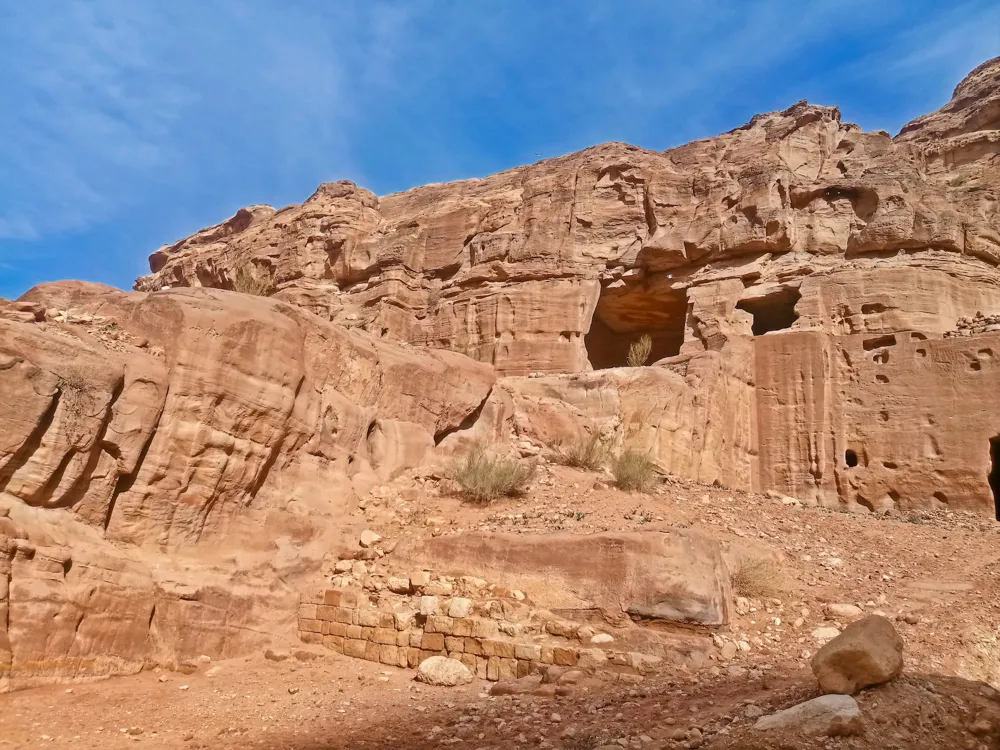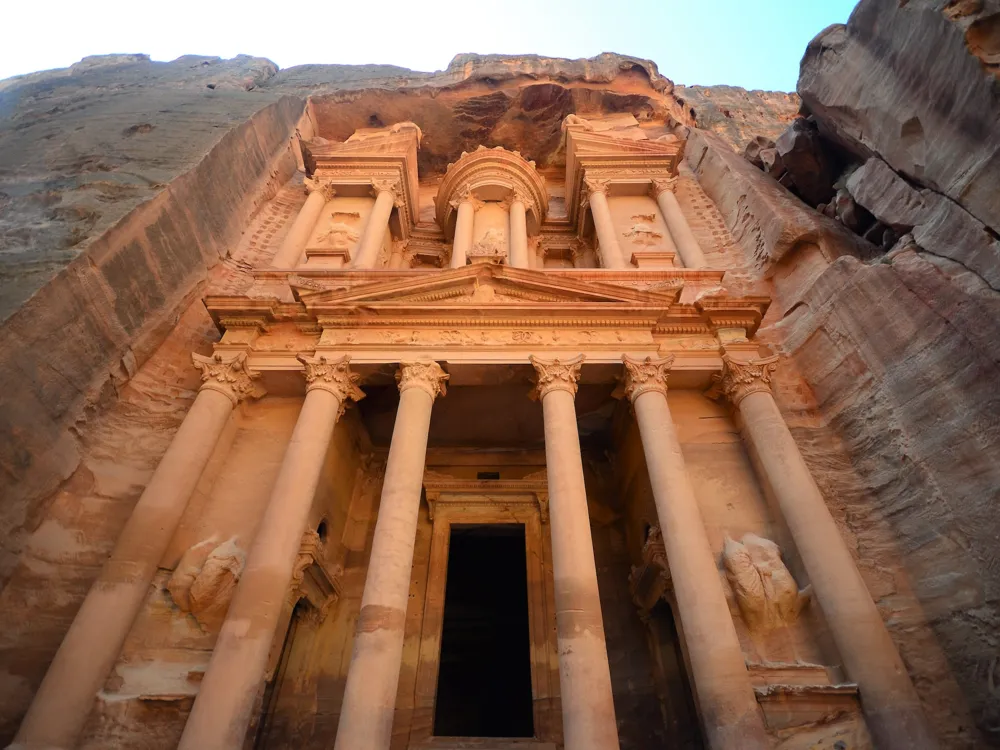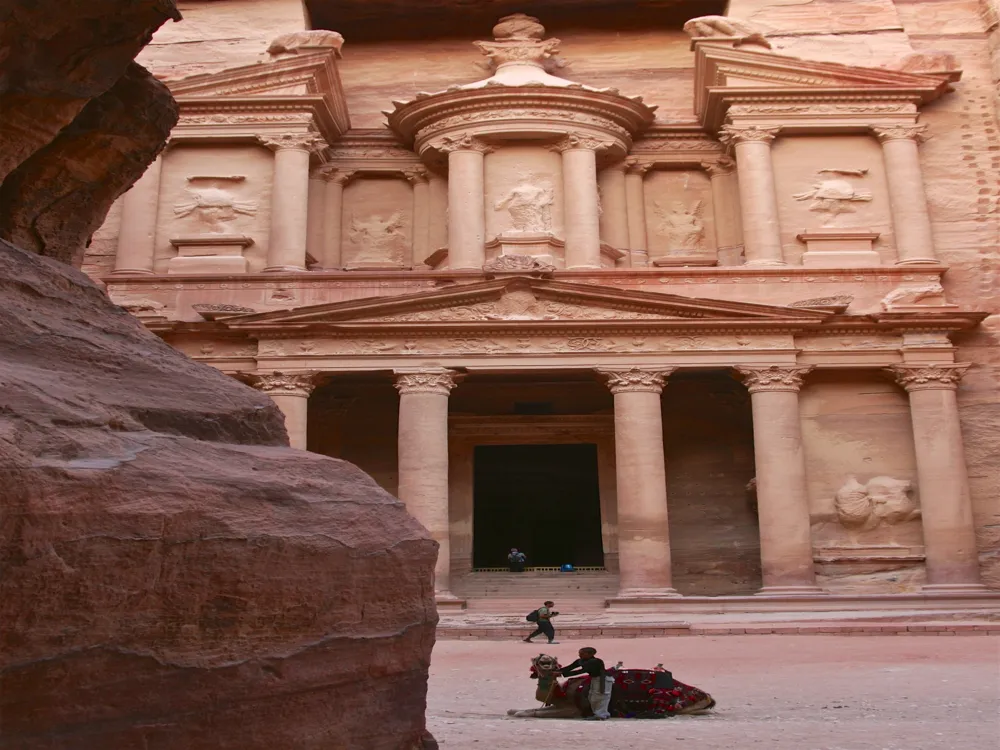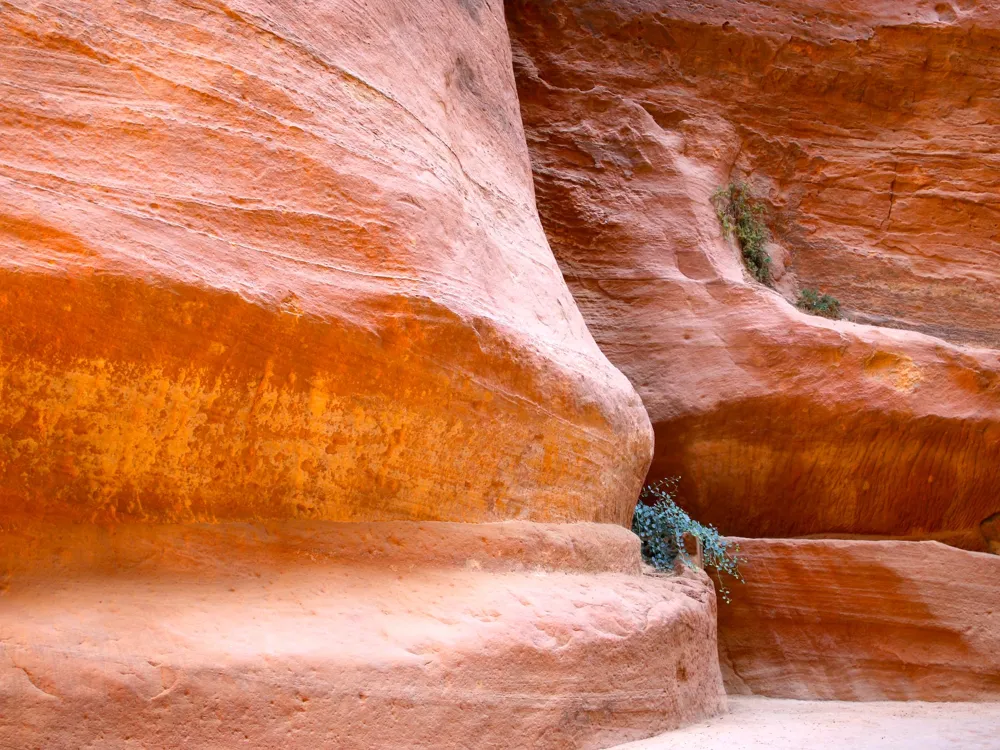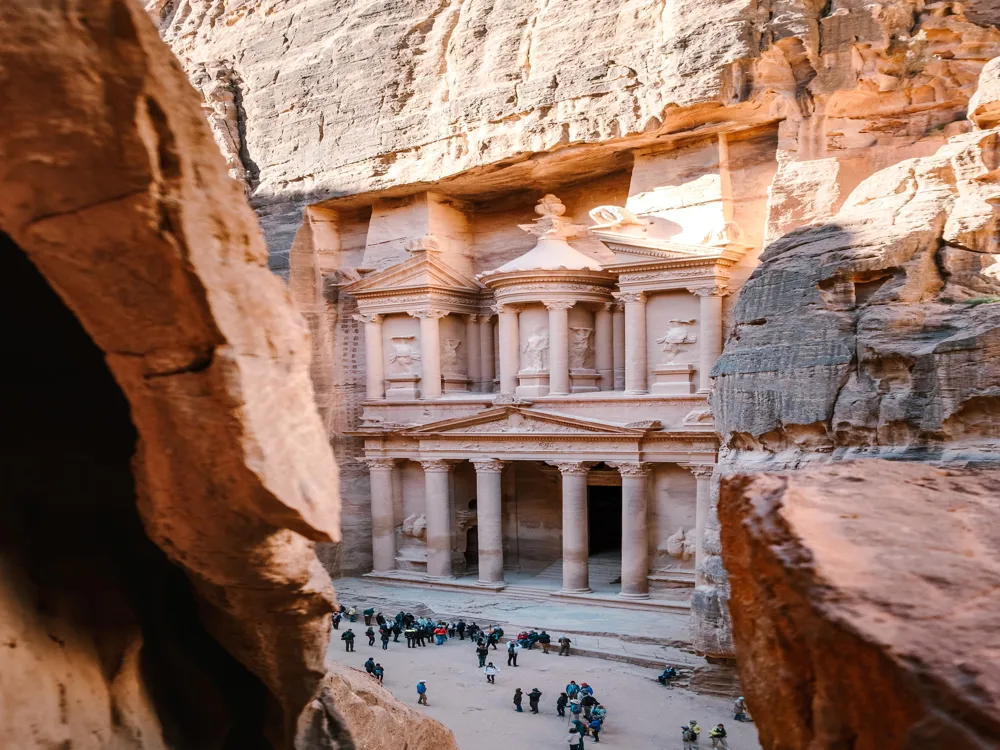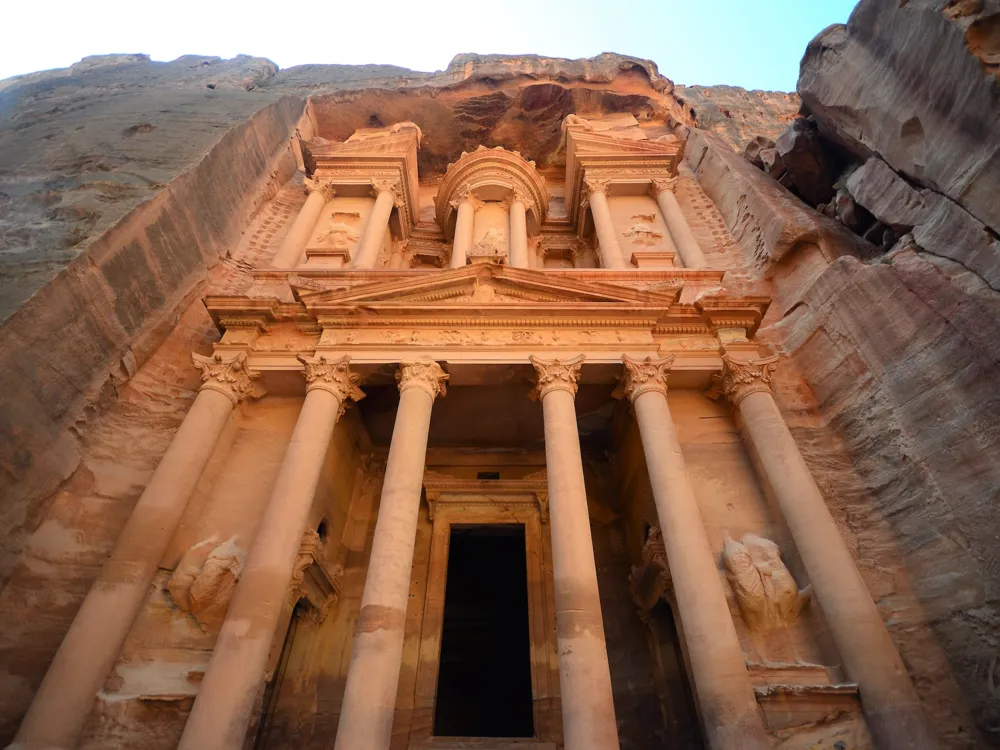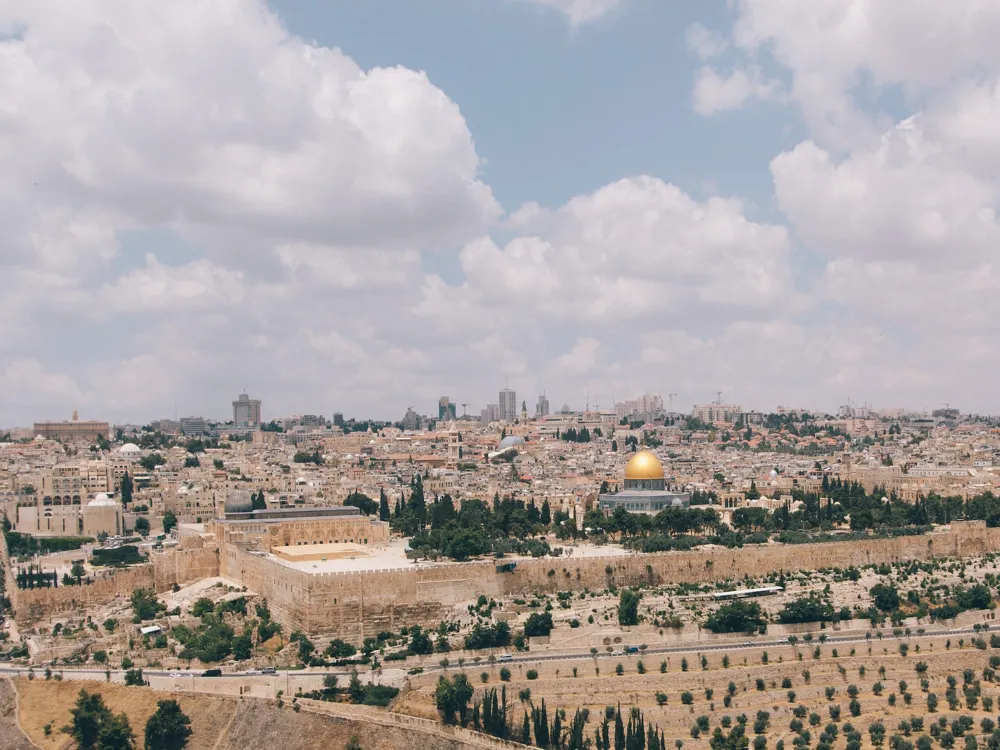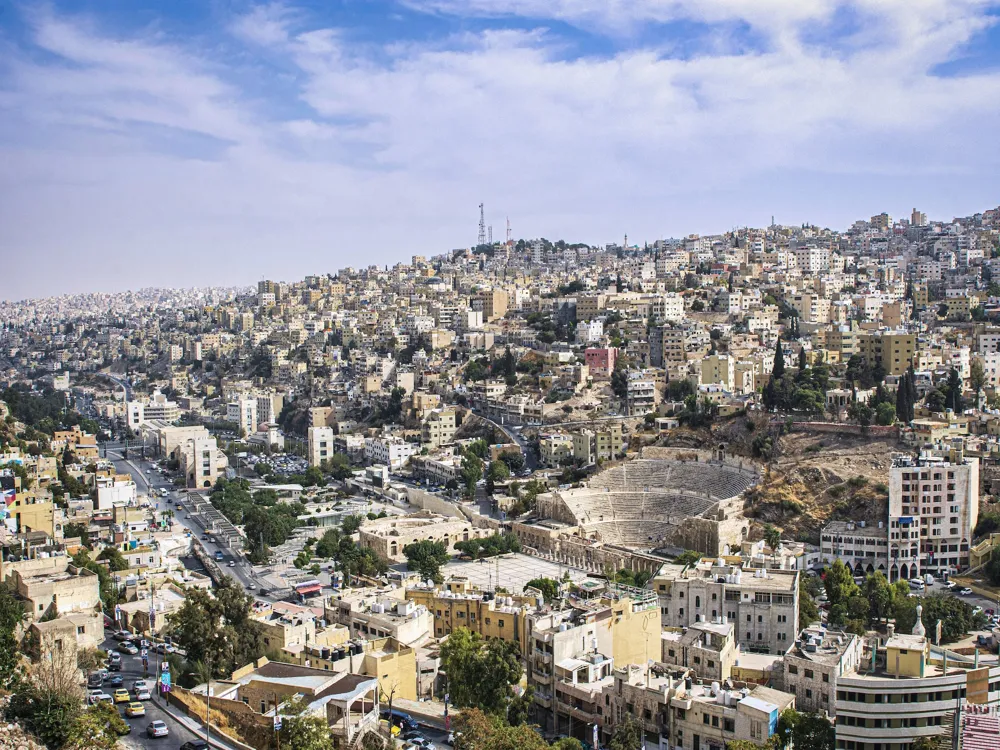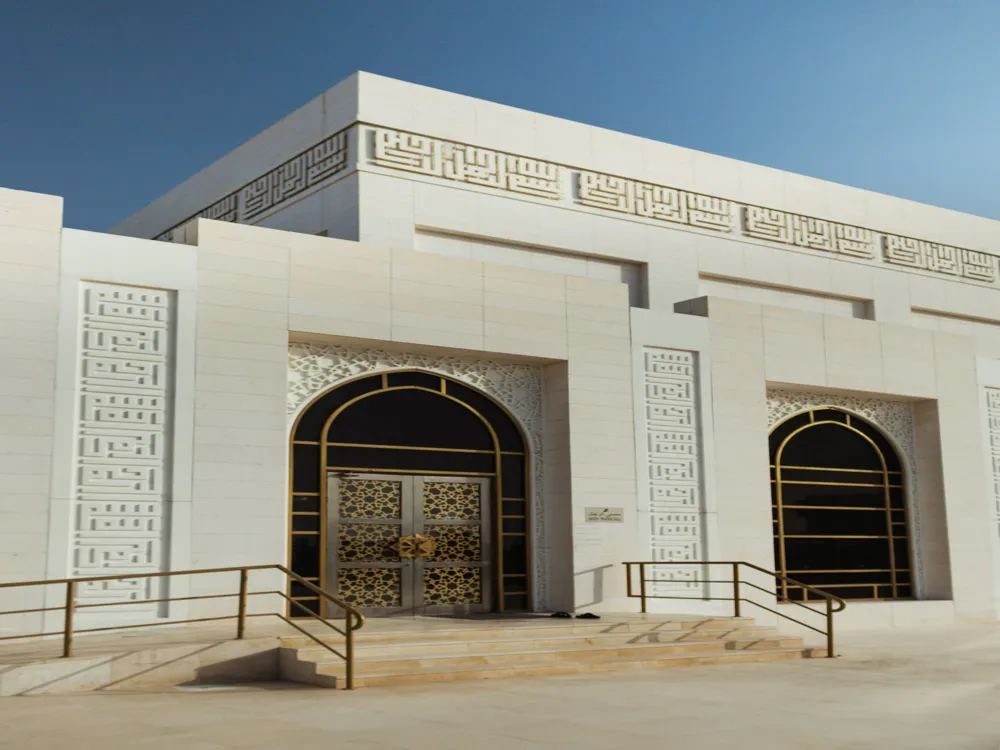Best Time to Visit Petra
Jordan
2 out of 6 Places to visit in Jordan₹ 35,900 onwards View Packages
Get Customized PackagesThe Land of Diversity
Top Hotel Collections

Private Pool

Luxury Hotels

5-Star Hotels

Pet Friendly
What is the Best Time to Visit Petra?
Petra, a treasure trove of ancient wonders nestled in the heart of Jordan, beckons travelers with its timeless allure. Selecting the best time to visit Petra is a crucial decision that can significantly impact your experience. Let's embark on a journey through the seasons, unraveling the magic that each one holds.
More about the Best Time to Travel to Petra
Travel Peak Season in Petra
For an enchanting visit to Petra, consider planning your trip during the peak season, spanning from March to May and September to November. During these months, the weather is mild, with temperatures ranging between 18 and 25 degrees Celsius. The pleasant climate sets the stage for exploring Petra's archaeological wonders comfortably. The skies are clear, allowing you to capture the iconic Al-Khazneh, or the Treasury, bathed in soft sunlight.
Travel Offseason in Petra
Petra in Shoulder Season
Petra Tour Packages The shoulder seasons, from February to March and December to January, offer a delightful compromise between the bustling peak season and the quieter offseason. While temperatures can be cooler, ranging from 10 to 18 degrees Celsius, you'll enjoy fewer crowds, making it an opportune time to absorb the ancient ambiance of Petra at a more leisurely pace.
Petra Travel Packages
View All Packages For Petra
Petra in Hot Season
From June to August, Petra experiences its hot season, with temperatures soaring to around 30 degrees Celsius. While the heat can be intense, this period unveils a unique charm. Early morning or late afternoon visits are recommended, allowing you to witness Petra's majesty while avoiding the peak of the day's heat. Embrace the warm hues of the sunset, casting a golden glow over the rose-red city.
Petra in Rainy Season
Petra encounters its rainy season from November to January, bringing occasional showers to the arid landscape. Despite the infrequent rainfall, this season transforms Petra into a lush oasis, painting the surroundings with vibrant colors. The moisture adds a touch of freshness, making it an unexpected yet captivating time to explore this ancient marvel.
Petra in Cool Season
The cool season, spanning from October to December, provides a comfortable climate for exploration. With temperatures ranging from 15 to 22 degrees Celsius, this time offers a perfect balance between warmth and coolness. The crisp air enhances visibility, allowing you to appreciate the intricate details of Petra's architecture and rock-cut structures.
Places To Visit In Petra
View All Places To Visit In PetraNearby Places Petra
Petra Photos
View All Photos For PetraBrowse Package Collections
Browse Hotel Collections
Faq
Q: When is the best time to visit Petra?
A: The optimal time to visit Petra is during the spring (March to May) and autumn (September to November) when the weather is mild, and the temperature is comfortable for exploring the archaeological site.
Q: What makes spring and autumn the best seasons for visiting Petra?
A: During spring and autumn, Petra experiences moderate temperatures, making it more enjoyable for outdoor activities. The colors of the surrounding landscapes are vibrant, and the site is less crowded than during the peak summer months.
Q: How is the weather during the summer months in Petra?
A: Summers in Petra (June to August) can be extremely hot, with temperatures exceeding 100°F (38°C). It's advisable to avoid visiting during this period to ensure a more comfortable and safer experience.
Q: Is winter a good time to visit Petra?
A: Winter (December to February) can be chilly in Petra, especially in the mornings and evenings. While crowds are minimal, some areas may experience rain, and certain activities could be affected.
Q: Are there specific events or festivals that impact the best time to visit Petra?
A: Check for local events or festivals, such as the Petra by Night show or cultural celebrations, which might enhance your visit. Planning around these can add a unique cultural dimension to your experience.





